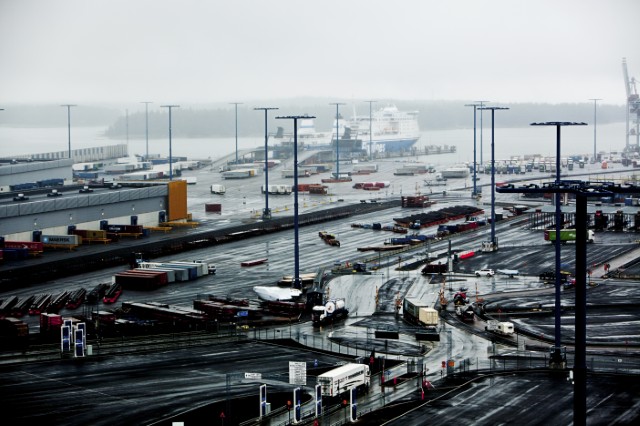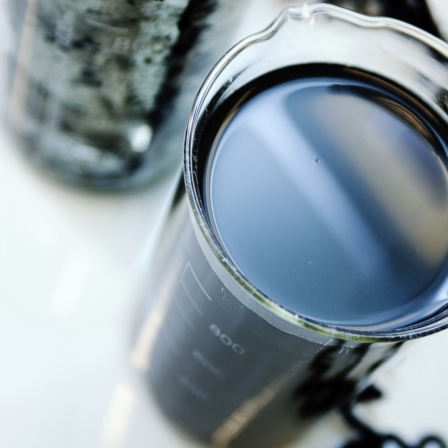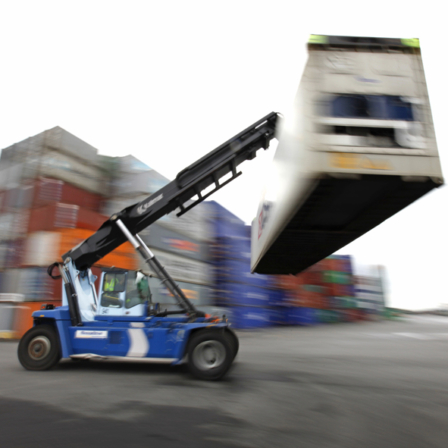Sitra’s Jyri Arponen: ”Finland is a flow-through economy: the majority of raw materials are imported and refined here with low value added.”
According to Sitra, Finnish companies can make money by solving ecological problems.
Already one of the foremost advocates of European industrial transformation and the circular economy, Sitra has become a founding partner in a new European co-operation network to promote industrial symbiosis and stimulate industrial growth. The European Industrial Symbiosis Association (EUR-ISA) aims to enhance competitiveness through resource-intelligent business co-operation. In a circular economy, companies circulate production sidestreams and unused raw materials, and utilise these in their own business. This also contributes to fulfilling the EU Commission’s targets for resource efficiency.
“Finland needs an industrial transformation. However, this is not a threat, but a huge opportunity. We need to start making money from ecological solutions. Industrial symbiosis offers an excellent tool for this,” says Senior Lead Jyri Arponen, who is leading the Industrial Symbiosis team at Sitra. According to the recent CTO2014 survey conducted for Sitra by Spinverse, the majority of Finnish Chief Technology Officers (CTOs) consider industrial symbiosis an extremely important means of developing their business. A recent study that Gaia Consulting carried out for Sitra suggests that Finnish companies have excellent potential for market-based business in industrial symbiosis.
EUR-ISA was launched on 6 November in Brussels. The European Commissioner for the Environment, Janez Potočnik, is convinced of the importance of industrial symbiosis: “Through EUR-ISA we can establish an effective framework to provide the European Commission with a single point of contact acting in the interests of multiple industrial symbiosis networks across all member states.”
Speaking at the launch of the association, Potočnik added: “We have also developed a knowledge-sharing platform enabling the industrial symbiosis networks who are part of EUR-ISA to share data, best practice, innovation and expertise and enable wide-scale and speedy implementation across Europe, based on the proven models of our members. EUR-ISA will also enable us to promote cross-border opportunities for the 20 thousand plus businesses currently participating in the networks and for the thousands of companies expected to engage with industrial symbiosis in the near future.”
In addition to Sitra, the founding members of EUR-ISA include: Motiva from Finland; International Synergies Ltd, which has successfully promoted industrial symbiosis in the UK; Essenscia from Belgium, which manages SYMBIOSE in Flanders; and the Danish Business Authority, managers of the Green Industrial Symbiosis Programme in Denmark.
The Association, which is based in Brussels, is a not-for-profit organisation and has been set up to help deliver the recommendations made recently by the European Resource Efficiency Platform (EREP), which provides high-level guidance to the Commission, member states and the private sector to help turn political will into action on the ground.
The scarcity of raw materials is causing headaches for companies all over the world. The attenuated availability of natural resources is limiting growth. Industrial symbiosis is an excellent tool for creating growth without increasing the load on nature. Based on the synergies deriving from co-operation between different industries, industrial symbiosis offers cost savings, decreases the amount of waste, carbon dioxide emissions and the use of raw materials, while at the same time creating possibilities for new business.
Sitra creates the prerequisites for an economically sustainable and carbon-neutral society and business. Industrial symbiosis is one central means to empower the competitiveness and internationalisation of companies, as well as to promote the circular economy through sustainable use of natural resources. In January 2013, Sitra started the key area Industrial Symbiosis, aimed at forming the best service model for Finnish businesses who need a reliable supply of raw materials and new partners to utilise their by-products and production sidestreams.
“Today, Finland is a flow-through economy: the majority of raw materials are imported and refined here with low value added. Far too much weight is put on the availability of raw materials and energy”, says Jyri Arponen of Sitra.
Sitra is co-operating closely with Finnish industry in order to improve companies’ potential for reaching the market, both in Finland and globally. So far, five global hot spots have been recognised, and co-operation-based commercial concepts for offering solutions to these hot spots are currently being formed with interested Finnish companies. Work is also under way to surmount the administrative barriers that have been identified.
The British National Industrial Symbiosis Programme (NISP) has already achieved impressive results both in the UK and internationally. The UK has succeeded in creating a more efficient use of resources within companies involved, while simultaneously creating several benefits. Together with Motiva, Sitra has tested the NISP model in three workshops this year.



Recommended